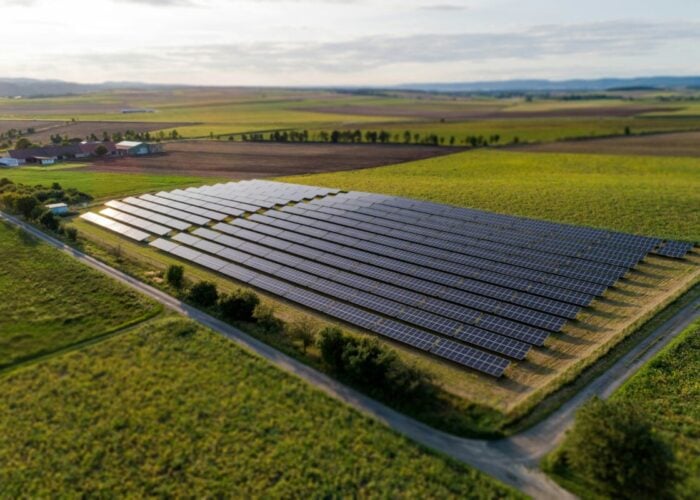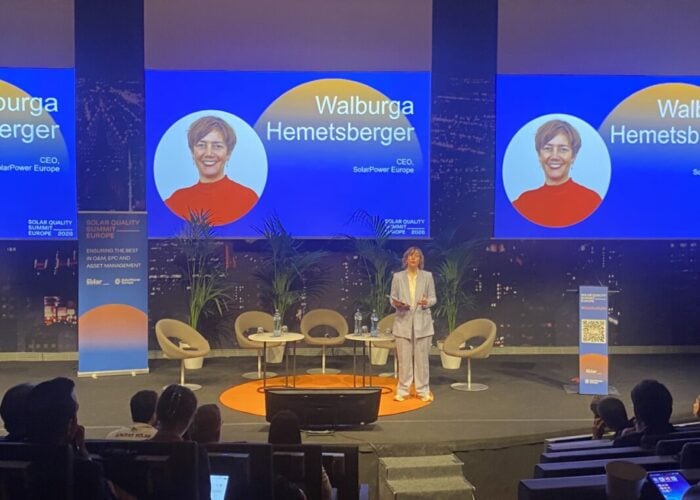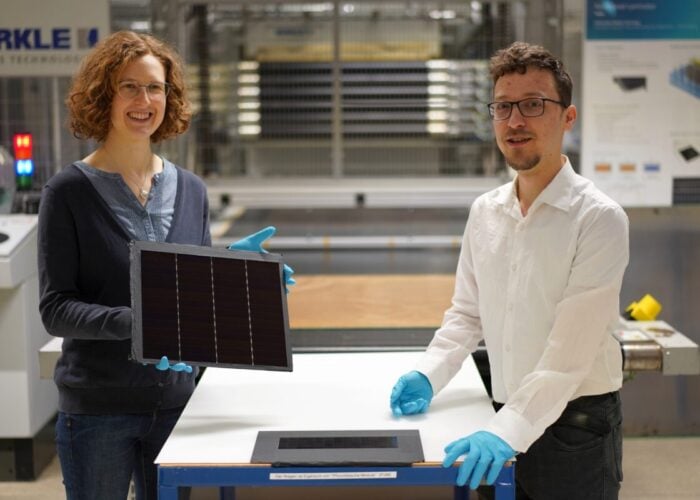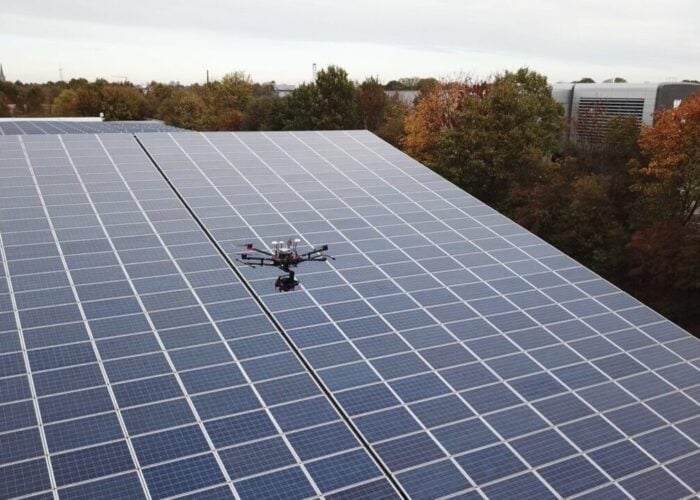
Physical and virtual power purchase agreements (PPAs and VPPAs) are imperfect but the most effective means of meeting the growing demand for electricity among data centres in Europe.
This was a key conclusion drawn by speakers at the first panel discussion hosted at Solar Media’s Renewables Procurement & Revenue Summit, held this morning in London. Robert White, head of energy at Ark Data Centres, said that PPAs and VPPAs are the best solution for a power supply issue that lacks “perfect” answers.
Try Premium for just $1
- Full premium access for the first month at only $1
- Converts to an annual rate after 30 days unless cancelled
- Cancel anytime during the trial period
Premium Benefits
- Expert industry analysis and interviews
- Digital access to PV Tech Power journal
- Exclusive event discounts
Or get the full Premium subscription right away
Or continue reading this article for free
“In a perfect world we would have a solution available in place that’s quick to market and 100% renewable 100% of the time,” said White. “It’s the same thing the grid wants, but the technology is not really there at the moment, so your options – if you’re producing not through the grid – are solar, wind and a number of [other] items.”
This is important considering the well-known demand for electricity in the data centre sector. When asked to agree or disagree with the statement that data centres and hyperscales will be the “primary buyer” of renewable power in the next 20 years, 73% of the panel’s attendees agreed, with 33% “strongly” agreeing.
Indeed, this trend is set to continue. Figures from Independent Commodity Intelligent Services (ICIS) suggest that, between 2024 and 2035, the sheer demand for electricity from data centres in Europe will increase from 86TWh to 236TWh. Data centre electricity demand will also account for 5.7% of Europe’s demand in 2035, up from 3.1% in 2024.
“The big challenge for us is getting a PPA or a VPPA place that still makes us competitive, while still hitting our renewable targets, and trying to match that with our renewable targets,” added White, highlighting that market challenges persist in such a rapidly changing environment.
“The three challenges that we have are sustainability, predictability and access to power,” agreed Olivier de Nomazy, head of energy sourcing and market intelligence at DATA4. “The PPA is definitely one answer for the first two challenges, at least … and in some countries it can help getting access to power.”
‘A very strong business case for PPA investment’
The strong business case for renewable power in Europe in general, and the position of data centres in particular, means that there is demand for both PPAs and the work of data centres. According to Neal Kalita, senior director of power and energy at NTT Global Data Centres, this should encourage data centre managers to be more proactive in building new offtake agreements.
“Our leases in incredibly valuable … and that leads itself to alternative forms of financing,” said Kalita, who suggested that even the smallest data centre needs a minimum investment of around £2 billion. “Fundamentally, PPAs are good for business, good for our clients and good for business.”
“We have a very clear way of how we want the market to approach us, and we approach that so we filter out a lot of the crap, pardon my French,” Kalita continued. “There’s a very strong business case for PPA investment.”
Even in markets where PPAs are slightly less well-established, data centre managers can design PPAs in such a way that opportunities exist for the sector, according to Helen Kinsman, SVP of commercial and regulatory affairs at VIRTUS Data Centres.
“When you’re in a smaller market – for example in Germany – it’s really challenging to find a PPA that can ramp on a two- to three-year basis,” said Kinsman. “[We look to] short-term PPAs that will fill that gap.”
“We aim to have 60% of our power contracted by PPAs by 2030; we have an interactive model that we can adjust, so our plan is that we buy PPAs every year. We’re not going to buy a huge PPA, we’re going to be hedging ourselves as we go.”
Gas and storage
Questions persist, however, regarding different technologies and power generation types for data centre offtake agreements. Building on Kinsman’s comments, Kalita said that, at his company, “we don’t want gas coming on-site at all.”
“It makes it too complex, but it’s the only fuel that can account for the power density [that we need],” he conceded.
“When there’s one particular renewable source that is present in a country, such as solar in Spain, we tend to avoid pure solar because we’ll lose the benefit of predictability that the PPA could provide,” added de Nomazy. “We tend to look for a power source that’s not common in the country.
While panel moderator Phoebe O’Hara, clean power lead at Energy Transitions Commission, acknowledged that simply adding a battery to a data centre is not a straightforward solution, the integration of storage into data centres is likely to be a key component of the future of such projects.
“Energy storage is going to be a very critical part of the story,” said Kalita, discussing how data centres are set to become more active players in the European energy landscape. “We’re leveraging it with our existing PPA suppliers [and] we’re challenging them to retrofit storage to provide a longer yield.
“Data centres need to be a good grid citizen, and part of that is taking part in any demand-side, grid flexibility response.”
PV Tech’s publisher Solar Media is hosting the Renewables Procurement & Revenue Summit on 21-22 May 2025 in London. The event is exploring meeting Europe’s energy demand, the role of data centres in the energy transition, the outlook for European power and PPA prices and more. For more information, go to the website.






